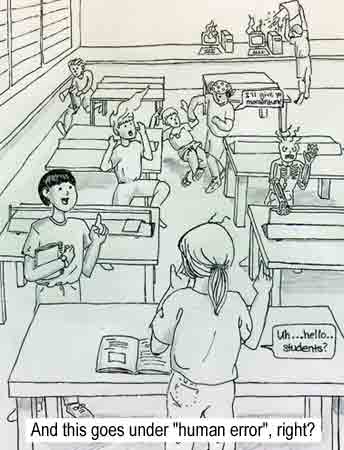Like the student in the cartoon, most people have the idea
that an error is a mistake or a mishap. In science, the word
"error" has an entirely different meaning. When we say "error"
we are talking about the fact that we cannot take measurements to infinite
precision.
Definition of error: The error or uncertainty in a value
is the range in which we are reasonably certain the value lies. (What
I mean by "reasonably certain" is covered in the last two sections.)
For example, if I asked you to measure the length of a pen, you
might get out your ruler, and declare the pen is 18.2 cm long. You
wouldn't say that the pen is 18.2021...34 cm long, with an infinite
number of decimal places. Why not? The obvious answer is
that the ruler only has so much precision. You can only measure
to the nearest division on the ruler, or perhaps half of one division
if you are really careful.
Before we get into how to measure and report these uncertainties, let
me first give you some incentive as to why we need to calculate
them in the next section.
